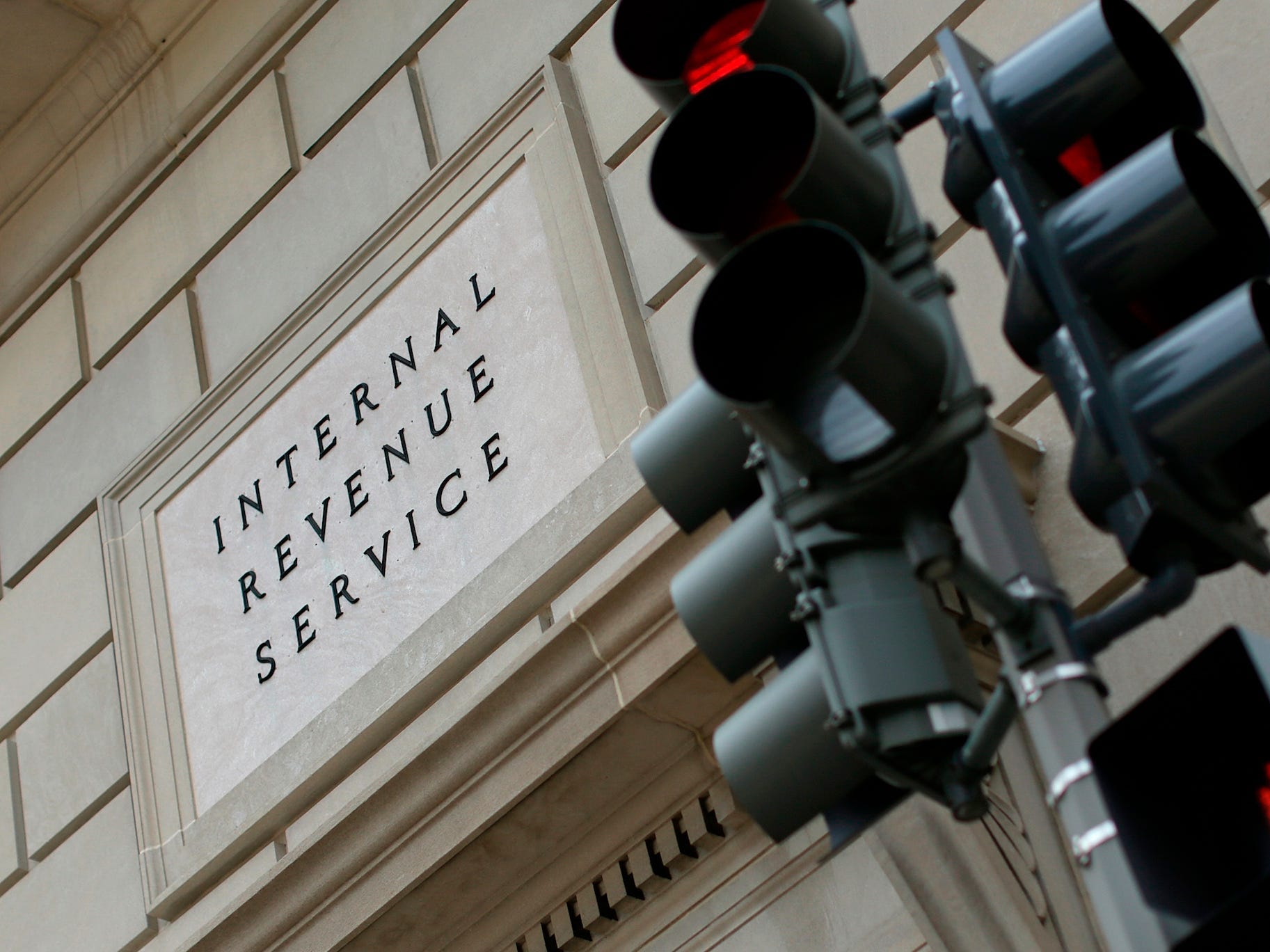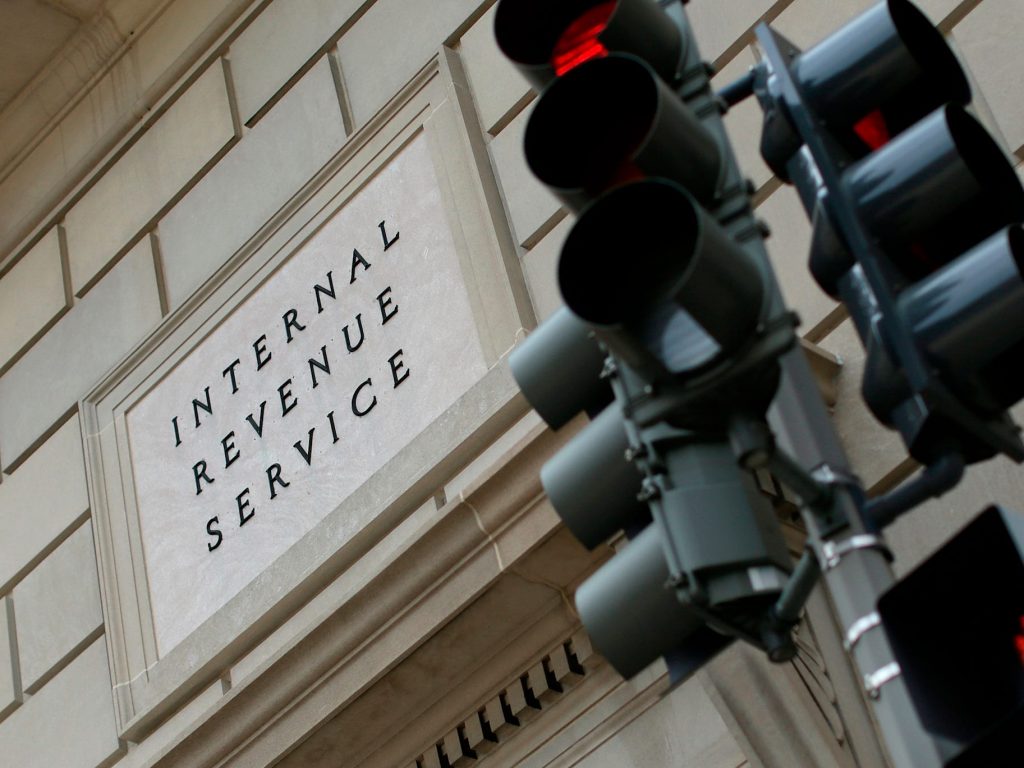
- The Treasury Dept. outlined proposals to combat tax evasion, including increased agency staffing.
- The tax gap of $600 billion in 2019 could, if unaddressed, hit $7 trillion over the next decade, it said.
- Stricter enforcement could generate $700 billion in revenue, which would help fund infrastructure.
- See more stories on Insider's business page.
To ensure that taxes are not going uncollected, the Treasury Department announced on Thursday new measures to strengthen Internal Revenue Service enforcement. It estimated that its new plans will generate $700 billion over the next decade and help close the tax gap between what taxpayers owe and what they actually pay.
Treasury released a report on Thursday that found the tax gap totaled nearly $600 billion in 2019, and if left unaddressed, it could rise to $7 trillion over the course of the next decade, implying the gap will grow by about $100 billion per year.
These are the first new estimates of the tax gap since 2011-2013, which showed an average gross tax gap of $441 billion per year, shrinking to $381 billion after factoring in late payments and enforcement efforts. The new estimate comes to almost 3% of GDP on an annualized basis and implies a voluntary compliance rate of around 84%, and a net compliance rate of around 86%, Treasury said.
The report outlines how the department will use $80 billion in funding to strengthen the IRS, with the primary goal of ensuring wealthy Americans pay their fair share.
"At the crux of these proposals is a commitment to revitalizing tax enforcement," the report states. "Working to close the tax gap reflects a commitment to ending our two-tiered tax system, one where most American workers pay their full obligations, but high earners who accrue income from opaque sources often do not."
Here are the Department's proposals for strengthening IRS enforcement:
- Provide the IRS with the resources it needs to address tax evasion, including modernizing technology and hiring and training agents for complex enforcement activities;
- Strengthen third-party reporting by leveraging information financial institutions already know about the accounts they house to strengthen compliance;
- Overhaul outdated technologies to help identify tax evasion while improving taxpayer services, like delivering the Child Tax Credit and Earned Income Tax Credit more efficiently;
- And regulate paid tax preparers and increase penalties for those who commit tax evasion.
The report added that the increased funding will allow for the hiring and retention of at least 5,000 new enforcement personnel, and by the end of the decade, the IRS budget will be roughly 40% above 2011 levels as a result of the proposals.
In April, IRS Commissioner Charles Rettig told Congress that the tax gap could be much higher than the agency's official estimate, due to the lack of accounting for things like virtual currency. "I think it would not be outlandish to believe that the actual tax gap could approach and possibly exceed $1 trillion per year," Rettig said.
And Insider calculated that President Joe Biden's proposed $80 billion in additional funding for the IRS could still leave $922 billion of Rettig's hypothetical $1 trillion in taxes uncollected, but even partially closing the tax gap would significantly help Biden fund his $4 trillion infrastructure proposal, among other things.
The Treasury's proposals come amidst consistent calls from lawmakers to hold the wealthy accountable. Sen. Elizabeth Warren has called for audits of the ultrawealthy every three years, and California Rep. Ro Khanna has introduced legislation specifically aimed at stricter auditing.
But the ultrawealthy have been preparing for more IRS scrutiny even before Biden's election. In October, Insider's Taylor Nicole Rogers reported that they had begun planning to get ahead of potential tax changes, and more recently, Biden's plan to raise the capital gains tax rate on Americans who make over $1 million per year has sparked anxiety, with Reuters reporting that wealth advisers are advising clients on the best ways to move around their money to avoid the potential hike.
Republicans have opposed Biden's proposed corporate tax hikes and have pushed for IRS budget cuts, notably in 2011. For fiscal year 2014, Republicans recommended cutting President Barack Obama's IRS budget request by 30%.
But Democrats and the Treasury agree that the IRS needs more funding to make sure the richest people in the country are paying their fair share.
"Right now, the wealthiest 1% are responsible for roughly 70% of the 'tax gap' - the difference between taxes owed and taxes paid," Khanna said in a statement. "It's time every American pay their fair share."
